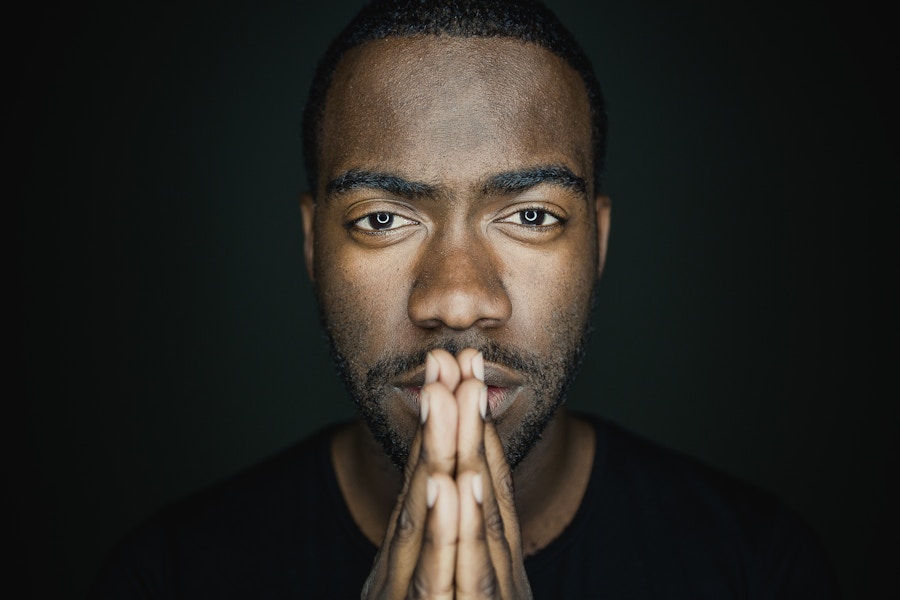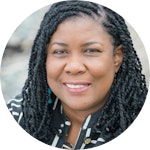Introductory Note:
This article by Sheila Wise Rowe, originally published in 2018 on her website, has blossomed into her book, Healing Racial Trauma. In this article, her book, and a Renovaré Podcast interview, she provides an overview of racial trauma and helpful steps forward.
Renovaré Team
When my family and I moved back home to America from South Africa, we were not prepared for what would greet us upon our return. The dead of winter in Boston with its frigid temperatures, gray skies, and snow were the least of them. We also noticed that the social climate had changed. Yes, our family and friends warmly welcomed us, but there was a coldness and callousness that permeated the mood of the country.
Six months on it has taken a bit of time to adjust. At times I’ve wondered with all the anger and venom spewing out on TV and social media if true racial reconciliation is even possible. A week after the shootings of African American men and police officers in St. Paul, Dallas, and Baton Rouge, I felt as if I was constantly on the verge of tears. At times my emotions vacillated between sadness, anger, indifference, and bone tiredness. One evening, I sat quietly and asked the Lord to help me to understand what was going on in my heart. The Lord brought to mind a class I taught in South Africa entitled, “Trauma Awareness, Healing, and Reconciliation.”
My students were peace builders who came from Canada and across the African continent. They were advocates for reconciliation, social justice, and peace. They served on the front line in their home countries of northern Nigeria, Swaziland, Rwanda, Zambia, Mozambique, Kenya, Canada, Angola, Uganda, and South Africa. Some worked with the families of the kidnapped Chibok schoolgirls, traumatized Christian and Muslim students and families affected by the massacre at Garissa University College, others were involved in ethnic and racial reconciliation and outreach to trafficked women and youth ministry. The intensity of spending that week together, learning and sharing our stories, was profound.
Post-Traumatic Stress
One afternoon I taught on the topic of Post-Traumatic Stress Disorder (PTSD). The Mayo Clinic reports:
“Diagnosis of PTSD requires exposure to an event that involved or held the threat of death, violence, or serious injury. Your exposure can happen in one or more of these ways: You experienced or witnessed the traumatic event, or you learned someone close to you experienced or was threatened by the traumatic event. Symptoms may include flashbacks, nightmares, physical symptoms, and severe anxiety, as well as uncontrollable thoughts about the event.”
To illustrate this, I shared the story of how a woman who had worked in one of the Twin Towers had survived 9 – 11. As she ran from the towers, ash gently clung to her hair and clothing. On the way toward her apartment, she passed people sitting at café tables and sipping their cappuccinos, unaware that the towers were falling. She arrived home safely and told her family she was fine. But as time passed it became apparent that all was not well. One morning she watched a TV special on the tragedy. She sat there transfixed and when the day passed unaccounted for, she then realized that it was time to come out of denial and process her grief and trauma.
After I told her story, my students began to open up. They shared how they also carried post-traumatic stress from the past, and although they had made the choice to forgive their abusers, their post-traumatic stress persisted. For my students, the symptoms came in different forms. For some, it was fear of impending disaster, a fear of intimacy, or a refusal to visit the part of town where the trauma occurred. For other students, it was suspicion of “the other” or reluctance to tell their story for fear they wouldn’t be believed. Many of my students recognized they had unprocessed and unhealed trauma.
That day, Christians and Muslims shared their stories, stories that had never been shared before. They listened to one another, cried, and afterward prayed for one another. For some, there was a degree of closure, yet for others, there would still be more work to do.
Race-Based Traumatic Stress
Little did I know upon returning to America that it would be evident that many people of color were similarly hurting and in need of healing from race-based trauma. I realized that I too needed healing. As I sat there in silence and remembered how that woman ran from the twin towers, I felt that, like her, so many of us have spent our lives running as if from a house on fire. We have seen lives and livelihoods lost as if they did not matter. We have endured traumatic histories and the almost daily assaults on our dignity, like being tailed at the mall or when someone yells the N‑word from a car as they speed past.
These lobbed grenades create such damage because they come when we least expect it and send a message that we do not belong. We are told there must be some reason why we deserved this, It doesn’t matter if we have an advanced degree, are a teenager in a hoodie, a member of the Senate, a janitor, or a celebrity. At some point, most of us have been profiled, and to survive we have suppressed or acted out our feelings. Many of us have just dusted ourselves off and taken a seat at a café table sipping our cappuccinos, teaching ourselves to minimize or deny the wounds and believe the lie that everything is okay.
“Scholars believe that day-to-day hassles can compromise psychological well-being … day-to-day stress can affect mental health when a large number of minor events add up and wear down a person, thus making her or him vulnerable to poor health. In the context of racism, daily hassles are described as ‘micro-aggressions.’” —Robert T. Carter, The Counseling Psychologist, 2007
Linda Goler Blount noted in The Root, “Research has shown that stress and trauma from racially motivated events create reactions in Black women [and men] that are similar to post-traumatic stress disorder. … These reactions include depression, lack of sleep, anger and an inability to get thoughts about what happened out of one’s mind.”
Soul Care
I had begun to experience some of the symptoms of race-based traumatic stress, and now I had to confront how I really felt. The words of Jeremiah 6:14 came to mind; “They have treated the wound of my people carelessly, saying, ‘Peace, peace,’ when there is no peace” (NSRV). It wasn’t just that others did not take my wounds seriously; I did not take them seriously either. As my tears fell, I chose to no longer make a false peace but to address the severity of my wounds. I realized that despite all my head knowledge about trauma, I needed healing and also tools for soul-care.
Clebsch and Jaekle, authors of Pastoral Care in Historical Perspectives, write that soul-care involves four primary elements: healing, sustaining relationships, reconciliation, and guidance. I will add a fifth element of action.
The Pursuit of Healing
To overcome race-based traumatic stress and move toward wholeness, we must pursue healing. It starts with a commitment to deepen our relationship with the Lord through his Word, prayer, and worship.
This is an urgent need because this journey is a hard one, but we do not go it alone. We need to see what we have been carrying for so many years and no longer minimize how recent events in our country have re-traumatized many of us. Our true emotions of sadness, anger, indifference, or weariness must be brought into the light. We must also acknowledge the emotional, physical and spiritual toll that race-based traumatic stress has had on us, our families, and our communities. Some of us will need to seek psychological help from a professional to work through the trauma, and there is no shame in that. All of us can bring our feelings to the Lord and allow the Comforter to come and treat our wounds.
Sustaining Relationships
As we grow deeper in our knowledge that God loves and cares for us, we can invite others to sustain, strengthen, and support us as we heal and transcend our trials and trauma. We all need other people, dear friends, and allies with whom we can process things and pray with. John Welshons, author of Awakening from Grief, writes, “Our job is to be a presence, rather than a savior, a companion, rather than a leader, a friend, rather than a teacher.”
We need others who will choose compassionate listening instead of merely mouthing words. This will help us to pursue true forgiveness and reconciliation as we live in the tension of having dear friends who are white while also having some of our deepest pain occurring at the hands of white people.
Reconciliation
A 2016 Facebook post from Natasha Howell tells of her encounter with a white police officer in a convenience store. Natasha writes that as she got closer, the officer asked her how she was doing: “I replied, ‘Okay, and you?’ He looked at me with a strange look and asked me ‘How are you really doing?’” to which she responded, “I’m tired!” His reply was, “Me too.”
Then he said, “I guess it’s not easy being either of us right now is it?” He then walked up and hugged her, and she began to cry in his arms. In that one moment in the absence of accusation, spouting statistics or recriminations, the barriers came down, and they both acknowledged: I see you, and I see your pain.
As the tears flowed, healing began. That story gives me hope that even in the midst of hurting we need one another to make steps toward healing, forgiveness, and reconciliation.
I remember the bravery of those who lost loved ones at Emanuel African Methodist Episcopal Church in Charleston, South Carolina. The public forgiveness of those family members was extraordinary. It was not an affirmation that the brutal racist murders during a Bible study were okay. It was a declaration that judgment belongs to our God, and a defiant act of refusing to allow their freedom to be bound by despair, anger, and bitterness. They chose by God’s grace to walk in love and forgiveness while still striving for justice. I too have made the same choice.
Guidance
Once we forgive, there comes a greater freedom to be able to give and receive guidance. Racism and consequent race-based traumatic stress will not stop just because we have had some degree of healing. In light of this, we have to be diligent about the choices we make in our thoughts and actions. We can seek guidance from the Lord and trusted others about when and how to destress, to expose injustice, and to engage in action which advocates for our needs and those of others.
Action
I believe that things can change because of the many friends and allies of different races and ethnicities who see and hear our hearts and also roll up their sleeves to make a difference. Together we must strive toward social action which is hopeful, impactful, and life-affirming: “Finally, all of you, be like-minded, be sympathetic, love one another, be compassionate and humble. Do not repay evil with evil or insult with insult. On the contrary, repay evil with blessing, because to this you were called so that you may inherit a blessing.” (1 Peter 3:8 – 9 NIV). For those we don’t agree with, we still need to create spaces in person and across social media for one another to experience God’s healing, love, compassion, and grace.
Related Podcast
Originally published in January 2018 on Sheila Wise Rowe’s website. Used with permission.
Text First Published January 2018


